


Directions:
Read the following text. Choose the best word(s) for each numbered blank and mark A, B, C or D on the ANSWER SHEET. (10 points)
A survey of 1,000 British adults by the Royal Society for Public Health has revealed that young people are more likely to experience anxiety or depression due to social media. The survey report, #StatusOfMind, found that 91% of 16 to 24-year-olds use the internet for social networking and that rates of anxiety and depression rose steeply among that age group in the past decade. Social media platforms, such as Instagram and Snapchat, were assessed as the worst for young people's mental health, followed by Facebook and Twitter.
The report also highlighted the positive effects of social media, including self-expression, self-identity and community building. However, these benefits were outweighed by the negative impacts, including bullying, sleep problems and body image anxiety.
The Royal Society for Public Health has called for measures to be put in place to help tackle the negative effects of social media on young people's mental health. These include introducing pop-ups warning users about heavy usage, identifying users who may be suffering from mental health problems and providing support, and social media platforms highlighting when photos of people have been digitally manipulated.
Shirley Cramer, Chief Executive of the Royal Society for Public Health, said, "Social media has become a space in which we form and build relationships, shape self-identity, express ourselves, and learn about the world around us; it is intrinsically linked to mental health. It is important that we have checks and balances in place to make social media less of a 'wild west' when it comes to young people's mental health and wellbeing."
1. [A] in [B] among [C] between [D] beyond
2. [A] analyzed [B] assessed [C] evaluated [D] estimated
3. [A] benefits [B] drawbacks [C] limitations [D] advantages
4. [A] were [B] have been [C] had been [D] will be
5. [A] tackle [B] balance [C] enhance [D] evaluate
6. [A] identify [B] ignore [C] reject [D] acknowledge
7. [A] highlighted [B] noticed [C] recognized [D] realized
8. [A] intrinsically [B] extrinsically [C] implicitly [D] explicitly
9. [A] in place [B] in case [C] in turn [D] in fact
10. [A] wellbeing [B] behavior [C] attitude [D] performance
答案:
1. B
2. B
3. A
4. A
5. A
6. A
7. A
8. A
9. A
10. A
声明:本文内容由互联网用户自发贡献自行上传,本网站不拥有所有权,未作人工编辑处理,也不承担相关法律责任。如果您发现有涉嫌版权的内容,欢迎发送邮件至:service@bkw.cn 进行举报,并提供相关证据,工作人员会在5个工作日内联系你,一经查实,本站将立刻删除涉嫌侵权内容。
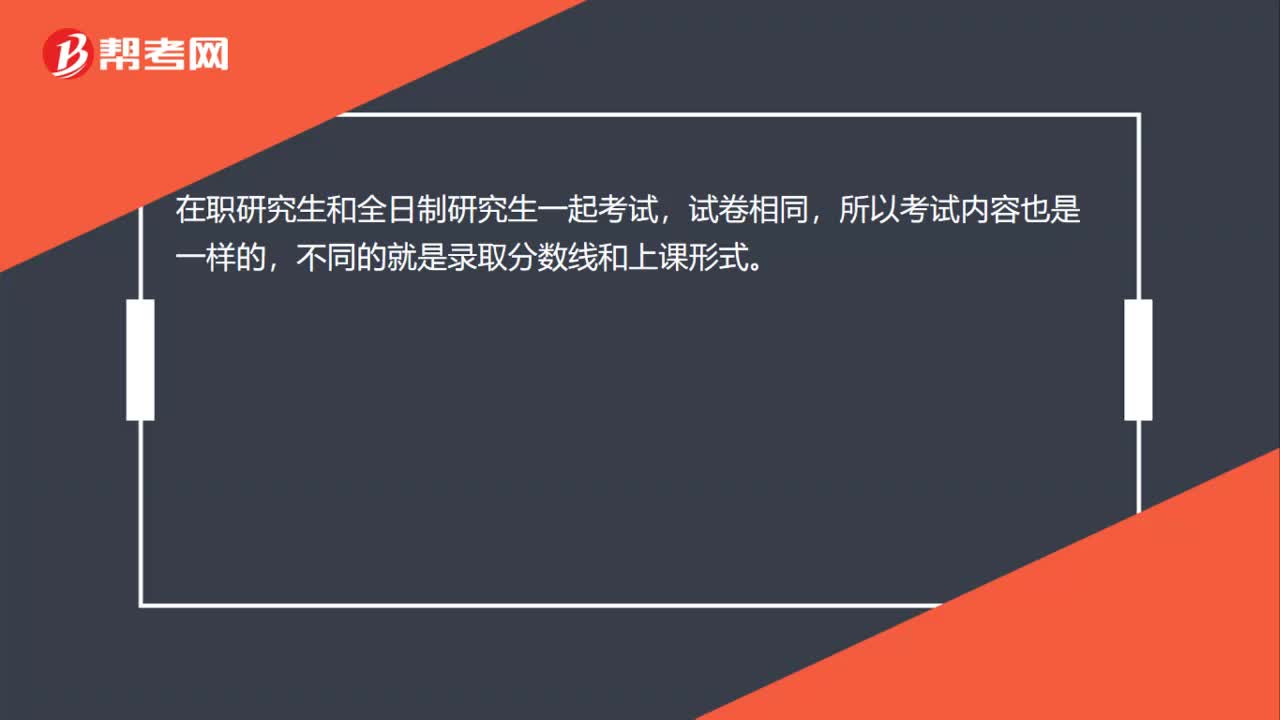 17
17在职研究生和全日制研究生入学考试的内容一样吗?:在职研究生和全日制研究生入学考试的内容一样吗?在职研究生和全日制研究生一起考试,试卷相同,所以考试内容也是一样的,不同的就是录取分数线和上课形式。
983播放2020-06-06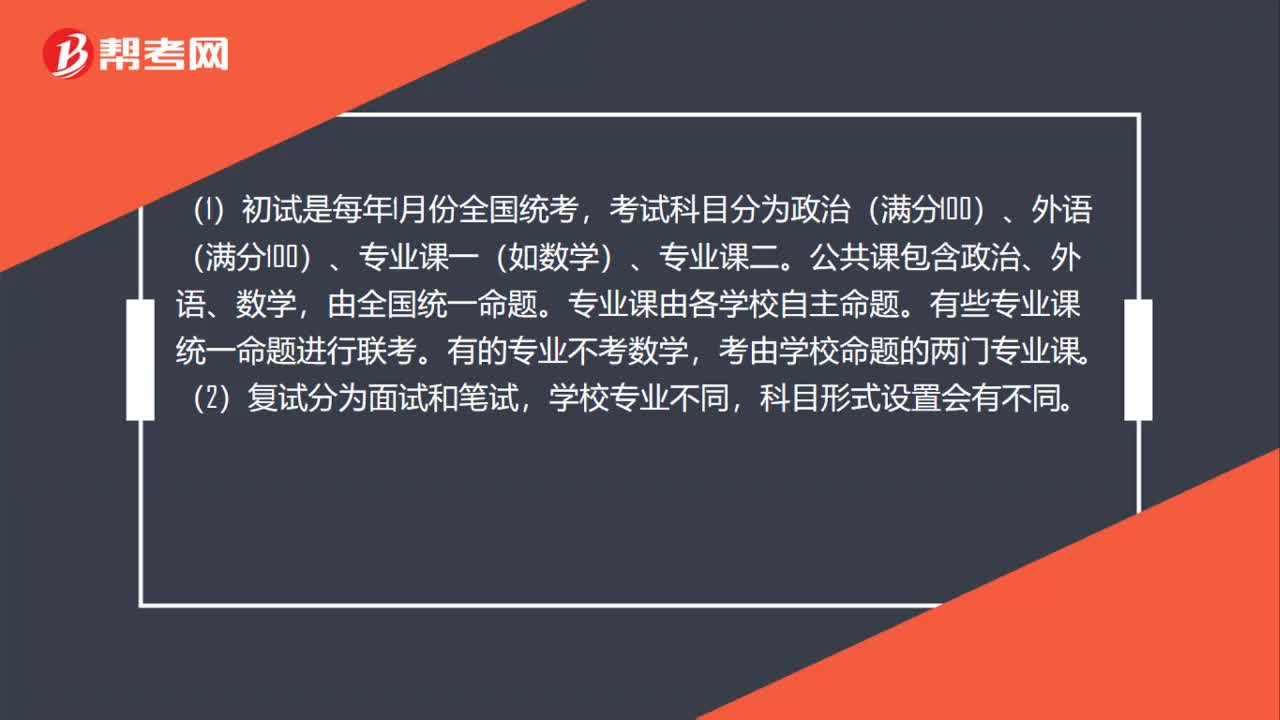 44
44研究生入学考试要考哪几门?:研究生入学考试要考哪几门?(1)初试是每年1月份全国统考,考试科目分为政治(满分100)、外语(满分100)、专业课一(如数学)、专业课二。公共课包含政治、外语、数学,由全国统一命题。专业课由各学校自主命题。有些专业课统一命题进行联考。有的专业不考数学,考由学校命题的两门专业课。(2)复试分为面试和笔试,学校专业不同,科目形式设置会有不同。
1403播放2020-06-06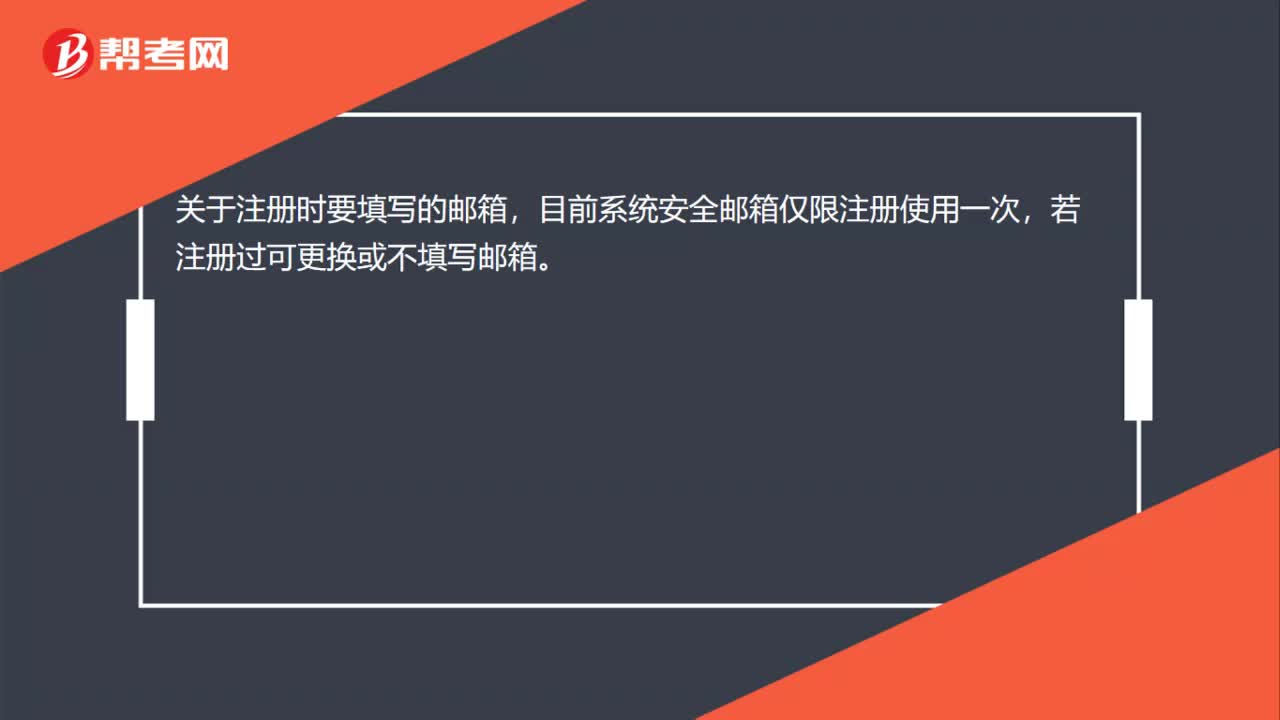 18
18普通研究生入学考试注册时一定要填写邮箱吗?:普通研究生入学考试注册时一定要填写邮箱吗?关于注册时要填写的邮箱,目前系统安全邮箱仅限注册使用一次,若注册过可更换或不填写邮箱。
686播放2020-06-06
考研究生英语一,应该怎么复习
cangzhanran·2020-04-05考研里面英语一和英语二有什么区别,谁的难度大一些?
bengpaishuan·2020-02-27MBA英语和普通的考研英语一样吗?
cexiaoliu·2020-01-25生物专业考研,考英语一还是二?
愿与君两相望·2020-01-09非全日制研究生考试英语一与英语二有什么区别?
孤岛孤心人亡海亡人心·2019-12-24考研英语考听力吗?
bingzaiming·2019-10-30考研英语和英语六级对于考研有什么区别?英语六级需要考多少分才够考研的资格
biqiangyong·2019-10-30考研英语二题型与考研英语一的区别。
buyuanyao·2019-10-27英语六级和考研英语哪个难?
axingzen·2018-06-15研究生复试英语口语考试一般都考什么?
bamiaohou·2018-06-10
经济学考研各科目的总分是多少啊
chanbinjian·2018-01-21考研数学二考积化和差和和差化积吗?要专业知情人士回答。要确定正确的答案。
anxiujuan·2017-06-03请问有哪些学长学姐知道东华大学合肥工业大学每年考研的报录比是多少
binpinggei·2017-06-14无学士学位自考本科生考研可以报考郑大吗?
binchouta·2017-06-09医学生大专毕业两年后可以直接考研吗?
anshuangqiao·2017-11-04考研中C区的211高校对B区的考生来说好考吗?是不是一般情况下上国家线就差不多了呢?
泡沫青春·2018-05-292o16年临床考研复试分数线
bingjisang·2018-06-10考研的国家分数线是什么意思
chashengfang·2018-06-10我今年考研,想考华南师范大学的化学类专业,但是不知道是考有机化学好呢还是分析化学,请给点意见
cehehui·2018-06-10考研如何填志愿
binongling·2018-06-10
速看,参加研究生入学考试之前,这些步骤必不可少!
帮考网校·2022-06-082022年考研预报名你了解多少?
帮考网校·2022-06-082023年各类研究生报考条件
帮考网校·2022-05-192023年研究生招生考试报考指南
帮考网校·2022-05-192023考研会计硕士,八大要素判断MPAcc院校报考难度
帮考网校·2022-05-26考研应该怎么选学校,怎么选专业?十大数据供您参考
帮考网校·2022-05-262022考研弃考率高达19%
帮考网校·2022-05-30考研为何如此火热?
帮考网校·2022-05-30研究生报考指南:专科生能不能考研?
帮考网校·2022-06-08浅析上海师范大学研究生教育水平和会计硕士性价比
帮考网校·2022-06-08
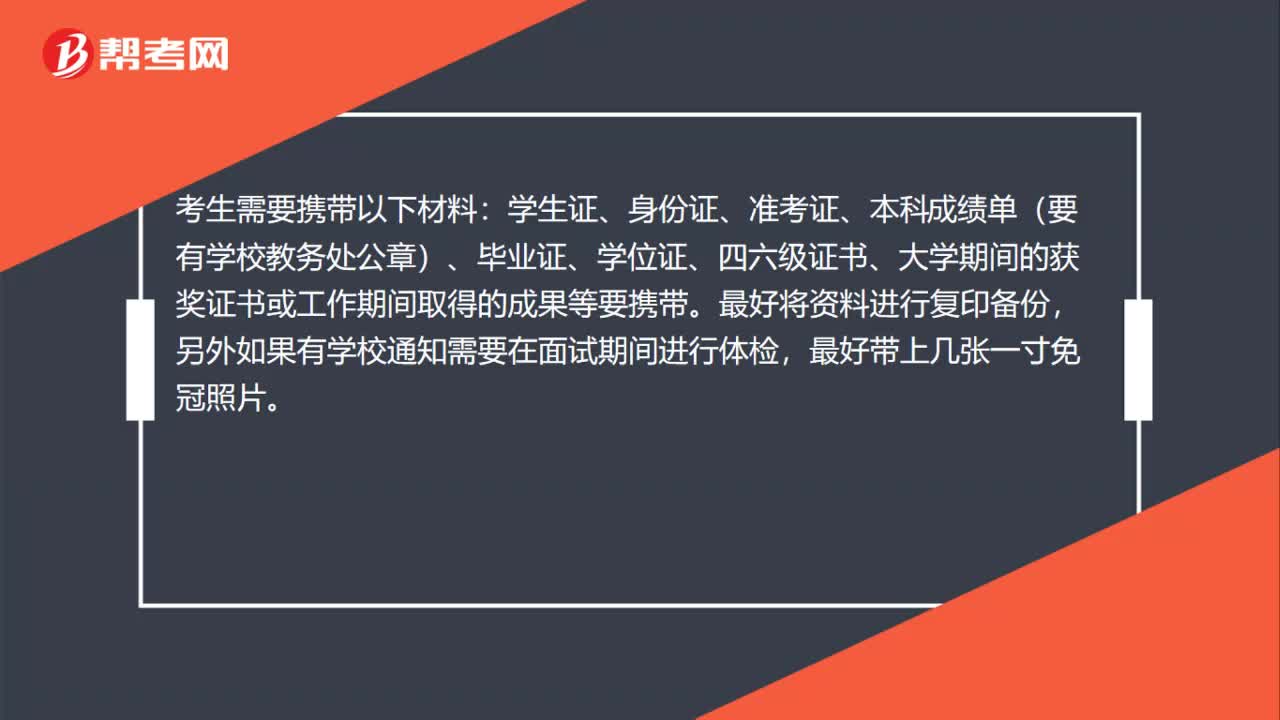 00:41应届生参加普通研究生入学考试复试时要准备哪些材料?
00:41应届生参加普通研究生入学考试复试时要准备哪些材料?2020-06-06
 00:44研究生入学考试要考哪几门?
00:44研究生入学考试要考哪几门?2020-06-06
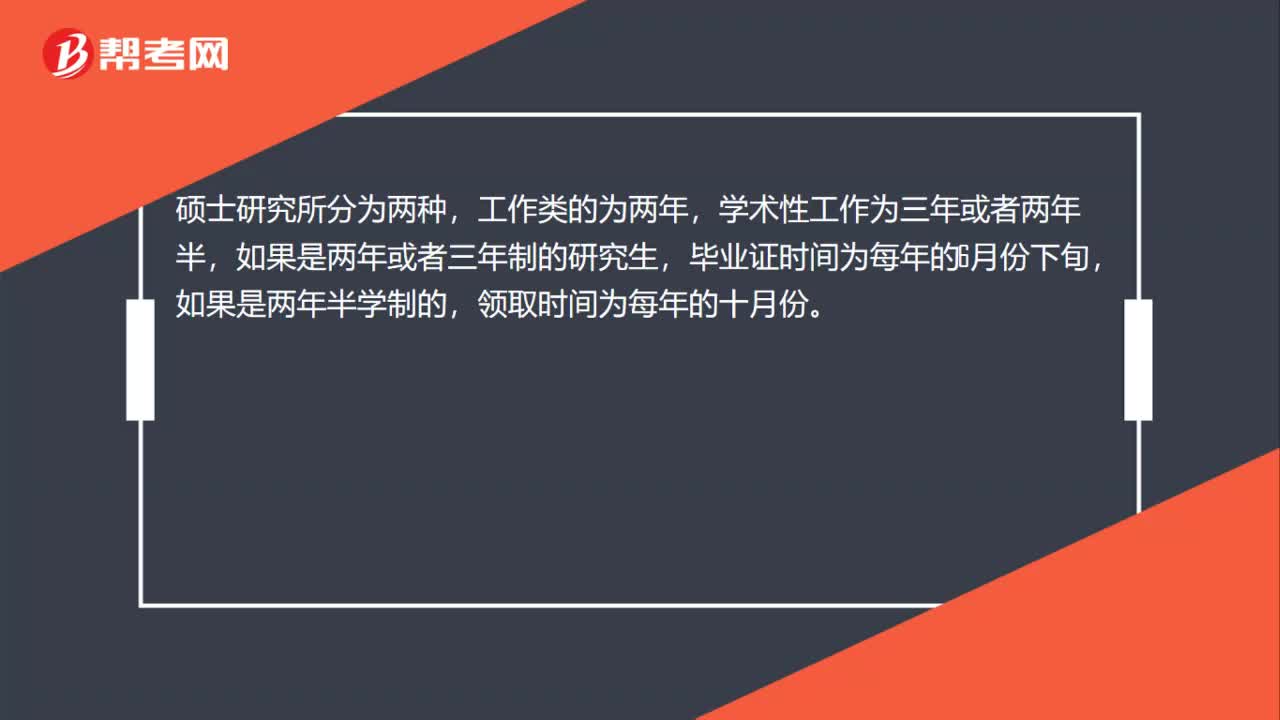 00:28普通研究生一般几月份能拿到毕业证和学位证?
00:28普通研究生一般几月份能拿到毕业证和学位证?2020-06-06
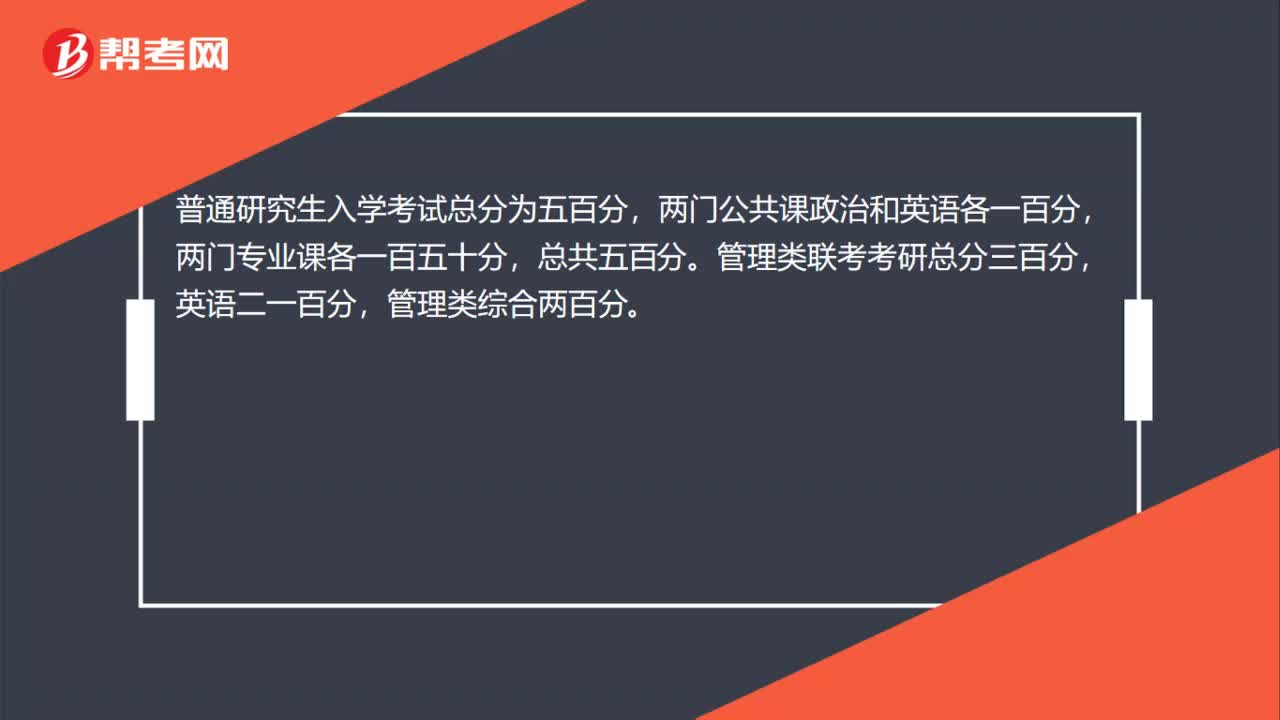 00:27普通研究生入学考试总分是多少?
00:27普通研究生入学考试总分是多少?2020-06-06
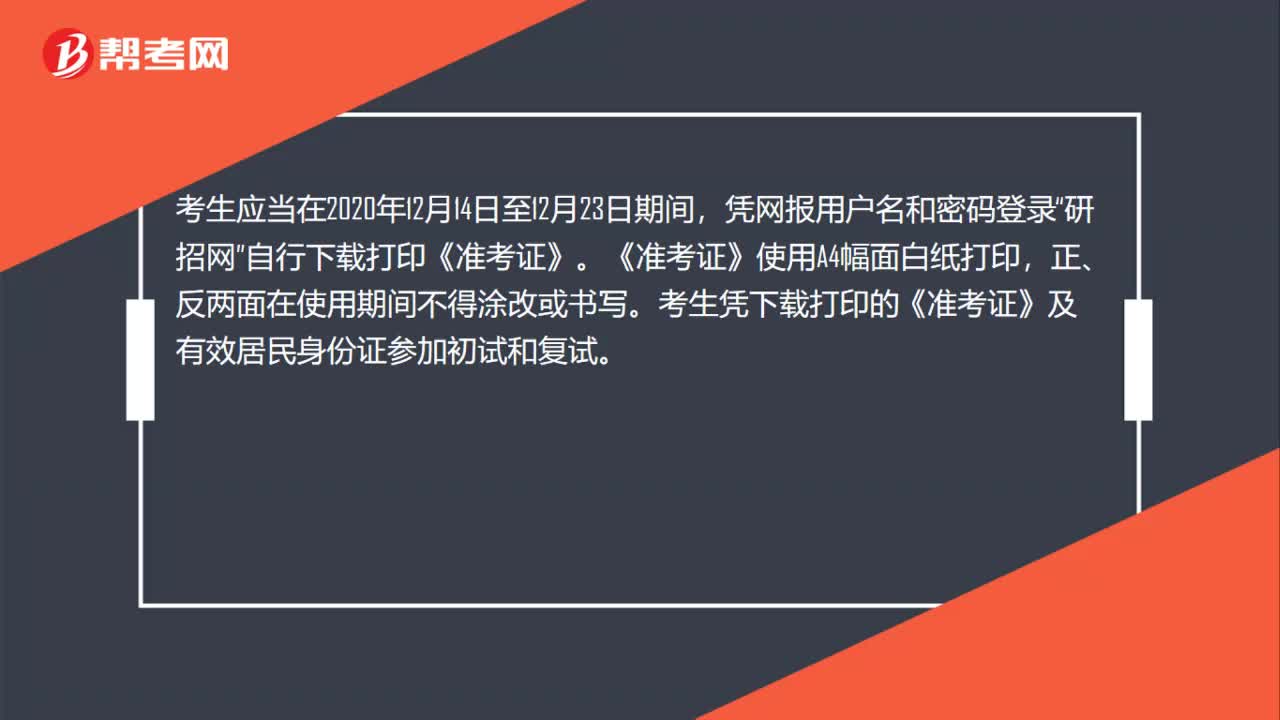 00:33普通研究生入学考试准考证什么时候打印?
00:33普通研究生入学考试准考证什么时候打印?2020-06-06

微信扫码关注公众号
获取更多考试热门资料














